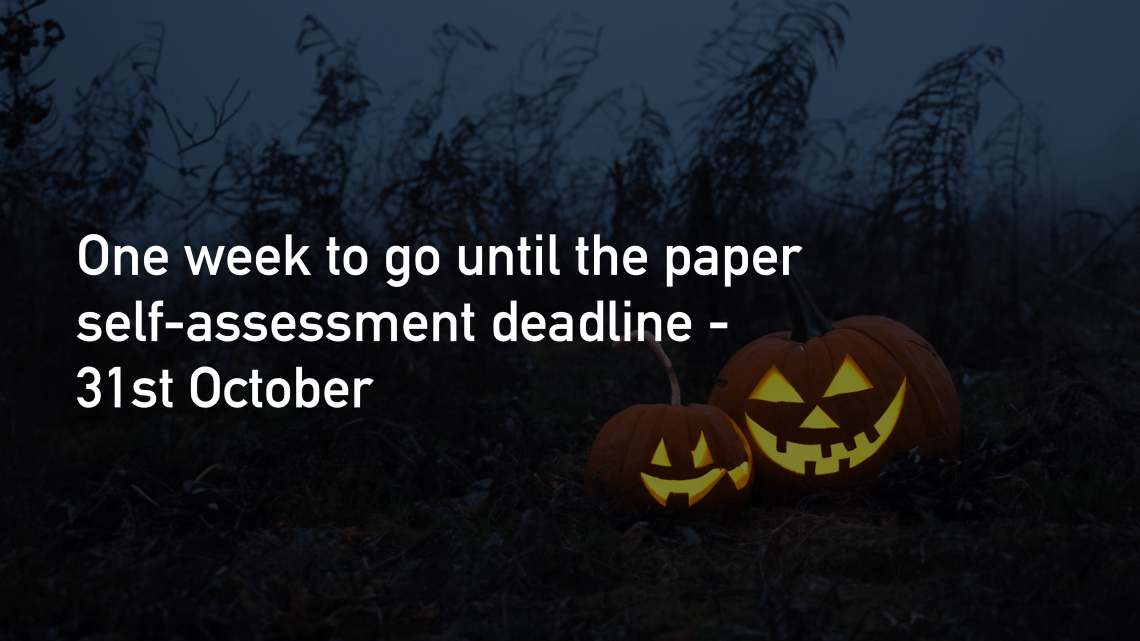
The deadline for individuals choosing to complete their self-assessment via post means you have until the 31st October (aka Halloween) for HMRC to receive all the necessary paperwork.
With only seven days until the deadline, Stevie Heafford, Tax Partner at HW Fisher, outlines who needs to complete a self-assessment and the common mistakes to avoid.
“Earlier this year, HMRC revealed that 96% of people completed their self-assessment online last year. This shows that while an overwhelming majority prefer to complete digitally, there are still some individuals who choose to complete their return via post.
“If you are planning to complete a paper self-assessment return, remember that the 31st October deadline is the date by which HMRC needs to receive all necessary paperwork – not the last day that you can send your return off. If you don’t think you will have enough time, don’t be spooked – you can still decide to complete your return online, for which the deadline is the 31st January 2024.”
Do you need to file a tax return?
You must submit a tax return if you have self-employed earnings or have received untaxed income over £1,000 or if HMRC have issued a notice to complete one.
However, it’s not just the self-employed who have to complete their self-assessment tax returns. You will also have to file if you have any untaxed income from:
Avoid a web of mistakes by following these five tips
Stevie adds: “To avoid the risk of your return getting lost in the post, and to give yourself more time to make sure you’ve included everything in your return, we’d always recommend completing your return online. If you’ve not done it this way before, don’t worry – the process is very simple and there’s plenty of advice and tutorials available on HMRC’s website that you can follow.”
We’d love to hear from you. To book an appointment or to find out more about our services: